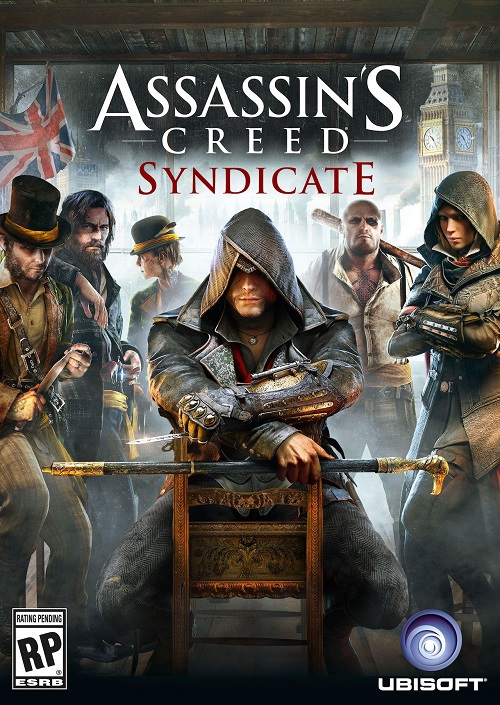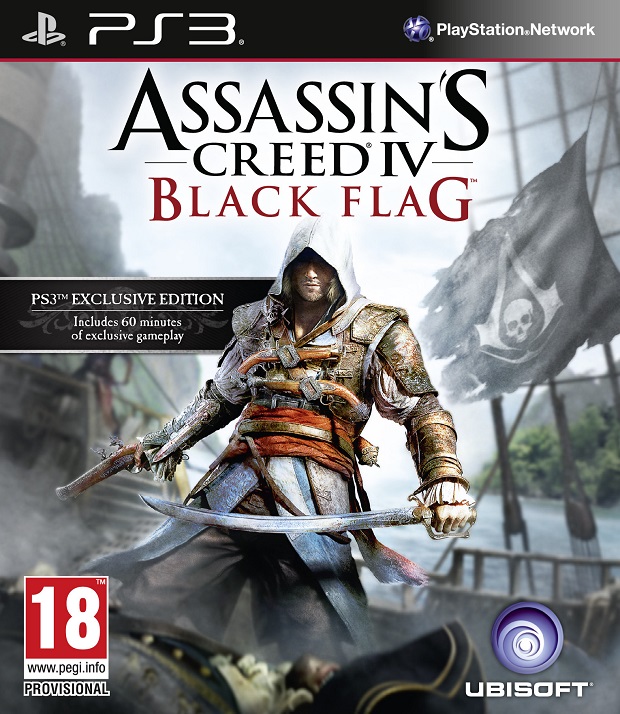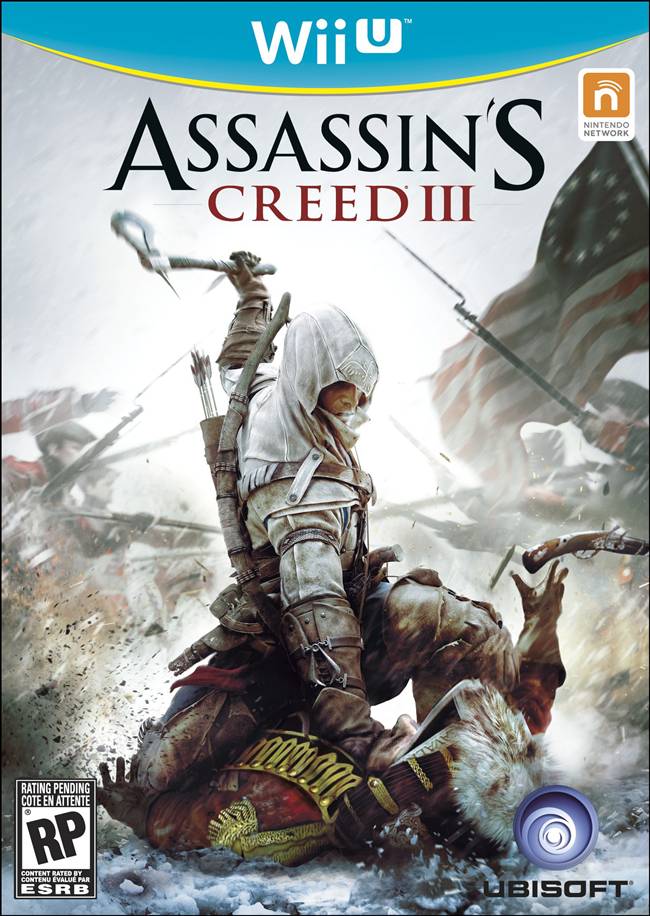
Ubisoft’s Assassin’s Creed series is a veritable roller coaster ride, a series that has provided us with some of the most memorable experiences we have had since its inception, and then also a series that has led to some bitter, crushing disappointments. Assassin’s Creed as a franchise has incredible potential- and when it meets that potential, it is truly superlative. Unfortunately, it fails to meet its potential almost as often as it does not- and that has led to some messy experiences.
Ahead of the launch of Assassin’s Creed Syndicate later this month, we’ve decided to go and look at all the mainline Assassin’s Creed games – that’s everything that was originally released on consoles, and at retail – and rank them all. It’s going to be an interesting way to celebrate the series that has made history cool again.
8. ASSASSIN’S CREED REVELATIONS
The thing with Revelations was that it wasn’t necessarily a bad game, even back at launch- unlike future games in the series, it launched without game breaking bugs, unlike future games, it didn’t suffer from mechanics that felt too dated, unlike future games, it didn’t suffer from trite mission design. But it just didn’t do anything well enough to stand out. It had no ambition, it threw in some vaguely tangentially related activities that murdered the game’s pacing (hello, bomb crafting and tower defense), and narratively, it was the very definition of filler, stalling the series’ momentum from Assassin’s Creed II’s excellent ending.
That said, the game definitely deserves some browny points for integrating the story of Ezio and Altair together excellently well, for concluding the Ezio saga satisfyingly, for setting up Assassin’s Creed III very well, and also for potentially being a better conclusion to the Assassin’s Creed franchise than III ever was. If only it actually played well too.
7. ASSASSIN’S CREED
The original Assassin’s Creed is the most dated game of the bunch, suffering from mind numbing repetition and very limited gameplay. But back when it first came out, there was nothing else like it- even then, it suffered from repetition and a dearth of things to do, but the game’s unique (at the time) take on stealth, combined with an actual emphasis on assassinations (gather intelligence, plan assassination, assassinate, escape), along with its incredibly fluid parkour and movement system, and the great historically authentic atmosphere that it weaved, made everyone stand up and take notice.
It was also a technical marvel, looking better than almost anything else on the market at the time, and narratively immediately sunk its hooks into people with the story of Desmond Miles, who was forcibly being held captive and exposed to a historical conspiracy. Playing Assassin’s Creed today is an almost painful experience, but at the time, there was nothing else like it.
6. ASSASSIN’S CREED III
Assassin’s Creed III was, on paper, perfect- it had a great setting (the American Revolution), a potentially great character (a Native American who gets pulled into the American War for Independence, and also the titanic struggle between the Assassins and the Templars), a complete overhaul of the series’ mechanics that had, by that time, started to show their age, the biggest map in the series, and almost too much stuff to do. Unfortunately, the game swung and missed- Assassin’s Creed III’s legacy is, in hindsight, largely one of disappointment.
The new traversal controls were problematic, as they combined climbing and running to one button, the combat was clunky thanks to the addition of guns, the mission design suffered from a crippling reliance and overabundance of eavesdropping and trailing (a specter that has continued to haunt Assassin’s Creed ever since), it was a disaster of pacing, with a ten hour long tutorial, it was buggy as hell at launch, almost to the point of being game breaking, the much hyped conclusion to the series’ arc was a bust, and none of its various elements gelled together too well.
All of that said, Assassin’s Creed III still was a game worth playing- it had incredible ambition, the actual traversal and combat were best in the series, warts and all, and it did introduce naval combat to the franchise, which may be the best thing to ever have happened to Assassin’s Creed. It wasn’t a highlight or triumph of its generation, but it was a game worth giving a look all the same.
5. ASSASSIN’S CREED ROGUE
Poor Assassin’s Creed Rogue. It was actually a very good game, it just had the misfortune of no one actually caring. The final game of the Assassin’s Creed III trilogy launched last year, alongside the much hyped Assassin’s Creed Unity, and completely flew under everyone’s radar. This, in spite of it being a nice game regardless. A lot of that has to do with the game feeling like a total and complete retread of the previous year’s release, Black Flag, without actually adding anything new to the mix- to a lot of people, there was no reason to actually get Rogue. If you wanted more Black Flag, well Black Flag was more than enough Black Flag (seriously, that game was massive).
This lack of ambition, coupled with a lack of marketing, and a release on last generation systems after the PS4 and Xbox One were in full swing, all conspired to kill Rogue in its tracks. A pity, it was a nice game. If you get the chance, hunt it down and play it. Or, hopefully, Ubisoft will release it on PS4 and Xbox One, as they should.
4. ASSASSIN’S CREED UNITY
This one is just a can of worms waiting to be opened, but let’s get it done with. You see, all the launch bugs (now mostly patched out) aside, Assassin’s Creed Unity was not a bad game at all. It had staggering ambition, it promised the evolution of the series’ core design that had largely stagnated ever since Assassin’s Creed II came out in 2009, it had some great new emergent gameplay in the form of its drop in/drop out co-op gameplay, a great setting with the backdrop of the French Revolution, a nice sandbox to play in thanks to Revolutionary Paris, and a very different take on the Assassin’s Creed story, by foregoing a bigger conflict and emphasizing character interaction.
Unity still did suffer from a lot of game design related issues, even if bugs are removed from the equation- its map had too many things to do, with Ubisoft equating banal checklist completion for actual game content, and none of it played well, and all of it detracted from the main game. The main campaign itself suffered from poor quest design, and the stealth of the game was absolutely terrible. The emphasis on multiplayer appears to have guided the design process for a lot of the game, which made it a poorer single player (the primary form of engagement with Assassin’s Creed) game.
All in all, much like every other game on this list so far, it’s a mixed bag. What Unity did well, it did pretty well, and the sheer audacity of its ambition must be commended. But it did so much wrong, too. It’s not a game that can be lightly recommended to everyone- depending on where you stand with different elements of game design, your mileage with Unity will vary.
3. ASSASSIN’S CREED BROTHERHOOD
When Assassin’s Creed is good, it is very good, and nothing demonstrates that as well as Brotherhood, which may be one of the best open world games of all time. Releasing just a year after the excellent Assassin’s Creed II, Brotherhood expanded upon its predecessor in just about every way, and did so in a sensible manner, meaning that Brotherhood’s improvements were not frivolous- all of them were genuinely necessary, and Brotherhood played far better as a result. The Rome setting, the eponymous Brotherhood mechanic, the continuation of Ezio’s storyline, the great villains in the form of the Borgia family, some of the best mission design in the series, incredible music, and the perfect balance of side activities, which incidentally, all organically blended with the main quest instead of feeling forced, and led to great excuses to explore the very well laid out map even more… Assassin’s Creed Brotherhood was borderline perfect. In fact, within the series, it may just be the best, strongest release yet. Not a single element of the package was lacking, even the multiplayer mode was a hit.
It’s the context of its release that pegs Brotherhood down to number 3, but seriously, this is a game that comes with a full, whole hearted recommendation. Even today, five years after its initial release, Assassin’s Creed Brotherhood is a joy to play, and represents the best of the franchise.
2. ASSASSIN’S CREED IV: BLACK FLAG
Arguably the most fun Assassin’s Creed game ever, Black Flag succeeds precisely because of how much it de-emphasized the ‘Assassin’s Creed’ part of the experience- its greatest triumph is in just how amazing of a swashbuckling, high seas pirate adventure it is. Following the roguish Edward Kenway, Black Flag ditches the traditional Assassin’s Creed trappings to give us a game that takes itself far less seriously than the series usually does- and it is a better game for that.
The naval sections of Assassin’s Creed III, which were just another side activity in that game, were expanded, and they form the backbone of Black Flag. Naval navigation and combat is beautifully handled, with deft, intuitive controls, and a seamless transition to on foot traversal and combat. Black Flag also offers a massive map, the biggest in the series, offering just about every single setting that you might want from Assassin’s Creed, and no shortage of things to do- and unlike every other Assassin’s Creed game sans Brotherhood, again, all of these things were actually fun to do. Black Flag was, in fact, at its best when you strayed off the main quest, and went whaling, or on a remote island to dig up some lost treasure or ancient Mayan ruins, or boarded a ship after pounding it into submission, and appropriated its crew and materials for yourself…
Black Flag did have some missteps, and those all came from the Assassin’s Creed part of the game. A maddening reliance on tailing and eavesdropping missions, and dated stealth mechanics bogged the experience down somewhat, but even there, Black Flag came through with a unique take on the franchise’s mythos, and a surprisingly engaging, touching story that might have the strongest conclusion yet in the series.
1. ASSASSIN’S CREED II
There really is no point in checking the top of any Assassin’s Creed rankings list, simply because we all know what game will be at the very top- Assassin’s Creed II is a monolithic presence in this franchise, a release that still remains the golden standard to beat, even after six years and seven games’ worth of iterations upon its formula. That is because Assassin’s Creed II got it all right.
It might be one of the best open world games ever made, and it gave us not one but three maps to play on, with Renaissance Italy’s flavor coming out strongly in all three. Ezio remains the best protagonist the series has ever had, and following his exploits from his birth through to the end of his journey for revenge made for a surprisingly well written, involving story. The music was great, and the game was beautiful, and the mechanics- oh, the mechanics! Assassin’s Creed II fully realized the promise of the original game, to the extent that the original now feels like a prototype tech demo to showcase the full release that Assassin’s Creed II would eventually become. The traversal was perfected, the combat got a good shot in the arm (though it still did remain the weakest part of the experience), the repetition was removed via extremely varied missions and possibly the best assassinations in the series, and a whole host of things to do by the side, none of which interfered with the main storyline, and all blended in organically, without detracting from anything else.
Assassin’s Creed II was truly a magical experience, and it wove an atmosphere around the player like few other games can manage. It is not only the best Assassin’s Creed game (perhaps destined to never be surpassed, now that the series has gone annual), but also one of the best games of the previous generation, and one of the best open world games of all time. It is a perfect example of a sequel, and a game that really should be in every PS3 and Xbox 360 owner’s library. There are no excuses for this one.
















